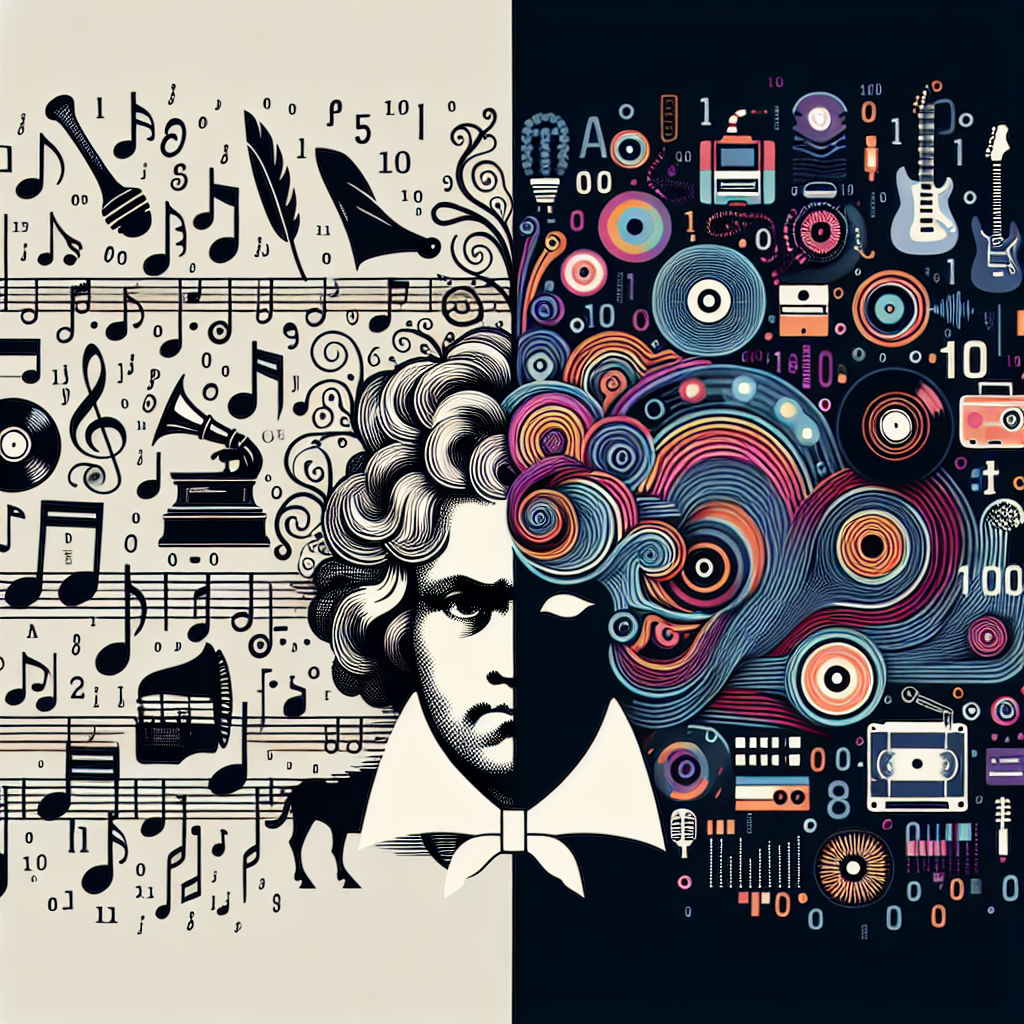The Evolution of AI-Generated Music: From Beethoven to the Beatles
Music has been a fundamental aspect of human culture for centuries, with composers like Beethoven and The Beatles leaving a lasting impact on the world with their innovative and groundbreaking compositions. However, in recent years, there has been a new player in the music industry – artificial intelligence (AI). AI-generated music is revolutionizing the way we create and consume music, with algorithms now capable of composing intricate and emotive pieces that rival those of human composers.
From Beethoven to The Beatles, the evolution of AI-generated music has come a long way. In this article, we will explore the history of AI music generation, the technology behind it, and its impact on the music industry.
History of AI-Generated Music
The idea of using computers to generate music dates back to the early 1950s when mathematician Alan Turing proposed the concept of a computer that could compose music. However, it wasn’t until the 1980s that significant advancements were made in AI-generated music.
One of the earliest examples of AI-generated music was David Cope’s EMI (Experiments in Musical Intelligence) project in the 1980s. Cope, a composer and professor, developed a computer program that could analyze the compositions of famous composers like Bach and Mozart and generate new pieces in their style. The results were surprisingly convincing, with many listeners unable to distinguish between the AI-generated music and the original compositions.
Since then, AI-generated music has continued to evolve, with advancements in machine learning and deep learning algorithms enabling computers to compose music that is indistinguishable from that of human composers. Today, AI-generated music is being used in a variety of applications, from film scoring to video game soundtracks.
Technology Behind AI-Generated Music
AI-generated music relies on a combination of machine learning and deep learning algorithms to analyze and generate music. These algorithms are trained on vast datasets of music, allowing them to learn the patterns and structures of different musical genres and styles.
One of the most common approaches to AI-generated music is using neural networks, a type of machine learning algorithm that mimics the structure of the human brain. Neural networks are trained on large datasets of music, allowing them to learn the patterns and structures of different musical genres.
Another approach to AI-generated music is using generative adversarial networks (GANs), a type of deep learning algorithm that consists of two neural networks – a generator and a discriminator. The generator creates new music based on the patterns it has learned from the training data, while the discriminator evaluates the quality of the generated music. Through this process of feedback and iteration, GANs can generate highly realistic and emotive music that rivals that of human composers.
Impact on the Music Industry
AI-generated music has the potential to revolutionize the music industry in a number of ways. For one, it allows musicians and composers to experiment with new styles and genres that they may not have explored otherwise. AI-generated music can also be used as a tool for inspiration, helping composers overcome creative blocks and generate new ideas.
Additionally, AI-generated music has the potential to democratize the music industry, allowing independent artists and musicians to create high-quality music without the need for expensive recording studios or production equipment. This can help level the playing field for emerging artists and open up new opportunities for collaboration and creativity.
However, AI-generated music also raises some important ethical and legal questions. For example, who owns the rights to AI-generated music? Should AI composers be credited as the creators of their music, or should credit be given to the programmers who developed the algorithms? These are complex issues that the music industry will need to address as AI-generated music becomes more prevalent.
FAQs
Q: Can AI-generated music be as emotive and expressive as music composed by human composers?
A: Yes, AI-generated music can be just as emotive and expressive as music composed by human composers. Advances in machine learning and deep learning algorithms have enabled computers to generate music that is indistinguishable from that of human composers.
Q: Will AI-generated music replace human composers?
A: While AI-generated music has the potential to revolutionize the music industry, it is unlikely to completely replace human composers. AI-generated music can be a valuable tool for musicians and composers, but human creativity and emotion will always be an essential part of the music-making process.
Q: How can musicians and composers use AI-generated music in their work?
A: Musicians and composers can use AI-generated music in a variety of ways, from experimenting with new styles and genres to overcoming creative blocks. AI-generated music can also be used as a tool for inspiration and collaboration, helping artists generate new ideas and explore new musical possibilities.
In conclusion, the evolution of AI-generated music from Beethoven to The Beatles has come a long way, with advancements in machine learning and deep learning algorithms enabling computers to compose music that rivals that of human composers. AI-generated music has the potential to revolutionize the music industry, opening up new opportunities for creativity and collaboration. However, important ethical and legal questions must be addressed as AI-generated music becomes more prevalent in the industry. As technology continues to advance, it will be fascinating to see how AI-generated music continues to shape the future of music.

